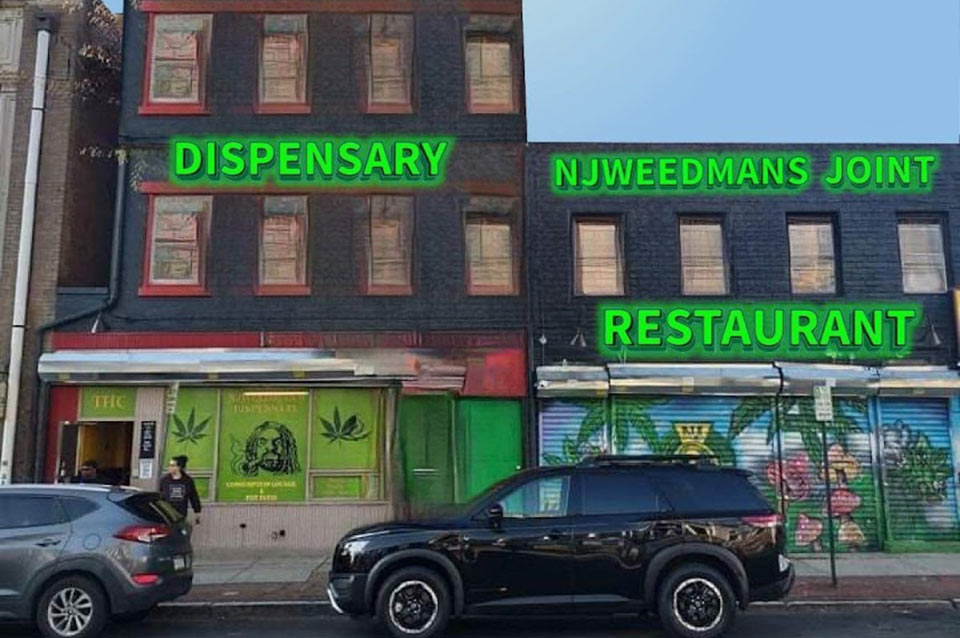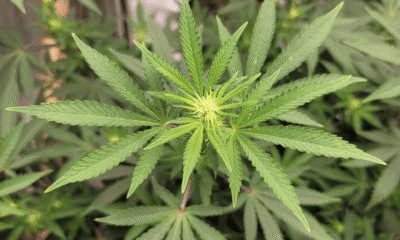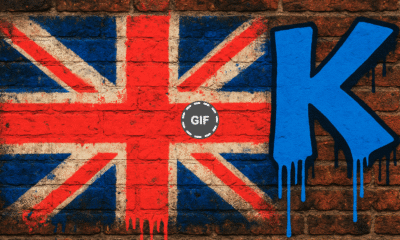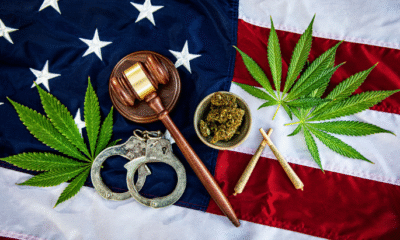A new social equity marijuana retailer in the New Jersey capital of Trenton – population 89,000 – says his neighborhood is inundated with unlicensed competition from the underground – a problem the city mayor even acknowledged to Green Market Report. But it appears there’s no immediate action underway.
John Dockery, owner of Moja Life on Warren Street in Trenton, opened for business on June 3, but he’s worried about what he says is a “proliferation” of unlicensed competition in the city. He estimated there are at least 18 illegal marijuana stores operating in Trenton – and nine just in his neighborhood.
“We have pop-up shops, like they have in New York City,” Dockery said. “It started off with just one or two, and because they didn’t fix the problem, it led to more people opening. … They’re all around me.”
The story mirrors what’s been seen elsewhere: Unlicensed operators undercut licensed companies by not paying taxes or other business fees.
“They sell $10 eighths, $15 eighths, $20 eighths (of marijuana flower). The lowest eighth I can possibly buy from a wholesaler is probably $23,” Dockery said. “I don’t think any business is going to be able to maintain if they city allows this to continue.”
Dockery said he’s complained to the city and to the state Cannabis Regulatory Commission, but so far officials have declined to take action against any of the shops.
State authorities told Dockery that it’s the city’s job to police cannabis operations in their own jurisdiction, and the Trenton city law department promised an eventual crackdown, but wouldn’t provide a timeline.
“They feel that we have more bigger issues than just cracking down on cannabis shops. We have a high crime rate, a high rate of mentally disabled people. So there are other issues,” Dockery said.
Trenton Mayor Reed Gusciora told Green Market Report that the city wants to support Dockery.
“We do acknowledge there are illegal operators, and that’s been of great concern for the city, but we didn’t want to take any action, one, because the state is not prepared to take action either, and this is more a state regulatory thing,” Gusciora said.
A big part of the concern, according to Gusciora, is the assumption that if a store was closed, it would just open up somewhere else in the city.
“That cycle would only cost police resources and fail to address the root of the problem,” he said.
At least three of the shops – Bud Bandit, Moe Weed, and NJ Weedman – had been granted conditional permits from the CRC, which is the first step on the path toward legal operations. But, Dockery said, the trio started selling far before they’re legally allowed to.
Tahir Johnson, another cannabis businessman who’s awaiting final approval to begin sales at his shop, Simply Pure Trenton, agreed that the unlicensed market has become a significant problem.
“You’re seeing them proliferate, because there aren’t penalties the way there used to be,” Johnson said.
However, he isn’t so keen on a crackdown, because he doesn’t want to see longtime cannabis entrepreneurs from pre-legalization days victimized by essentially a new war on drugs. Rather, he’d prefer the state figure out a way to transition such companies into the legal market.
According to a New Jersey state database, the only retailers fully authorized to sell cannabis legally in Trenton are Moja Life and Theory Wellness.
A spokesperson for the state Cannabis Regulatory Commission wrote in an email to Green Market Report on Friday, “Moe Weed and Bud Bandit are both operating without annual licenses. They are listed on our website as recipients of conditional awards, which do not allow businesses to operate. … Applicants cannot receive annual awards if they are engaged in illegal activity.”
Moe Weed had a conditional award, but it expired in February, meaning it would need to reapply to start the process again.
But Brittany Bennett, CEO of Moe Weed, said the company is not an illegal cannabis shop. Instead, it’s a licensed hemp and CBD store.
“Claims about Moe Weed being an unlicensed or illegal cannabis shop are entirely false. Moe Weed is a CBD and hemp store, and we operate 100% legally within all current city, state, and federal regulations,” Bennett wrote in an email. “We take compliance very seriously and ensure that all our products and operations meet the required legal standards.”
Dockery said there are also questions about Bud Bandit and others advertising what appear to be illegally potent marijuana edibles for sale.
The state limits marijuana edibles to 100 milligrams of THC per package, and yet Bud Bandit has chocolate bars, cookies, and other edibles advertised on its website that have 500 milligrams or more per package.
There were similarly illegal-looking high-potency edibles advertised on Moe Weed’s website, including 1,000-milligram edibles, along with a mixture of hemp-based goods that are even stronger, such as 3,000-milligram edibles of Delta 8 THC.
NJ Weedman also advertises 1,000-milligram “Wonka” chocolate bars on its website, and online customers can purchase up to 100 of them at once for $1,500, far surpassing the daily legal purchase limit of one ounce of cannabis products.
Representatives for Bud Bandit and NJ Weedman did not respond to requests for comment.
Gusciora called the situation “extremely problematic.”
“If the city then cracks down on someone with a provisional license, that’s problematic because you’re taking on the state. So right now, I specifically want to address purely illegal cannabis operators who haven’t even made one step to try to get a legitimate license,” Gusciora said, indicating that Bud Bandit, Moe Weed, and NJ Weedman may get a pass, at least for now.
Dockery said he went to the media as a last resort.
“I don’t want to piss anybody off, but it’s like, enough is enough,” he said.

 California Cannabis Updates1 year ago
California Cannabis Updates1 year ago
 Breaking News1 year ago
Breaking News1 year ago
 best list1 year ago
best list1 year ago
 Business1 year ago
Business1 year ago
 Business1 year ago
Business1 year ago
 cbd1 year ago
cbd1 year ago
 Bay Smokes1 year ago
Bay Smokes1 year ago
 autoflower seeds1 year ago
autoflower seeds1 year ago















































